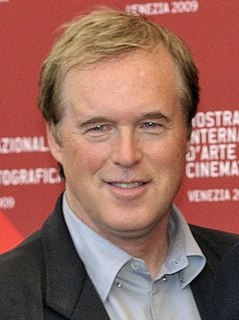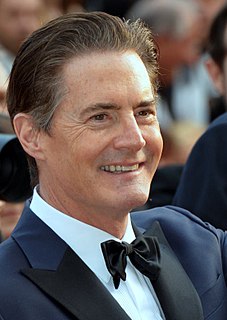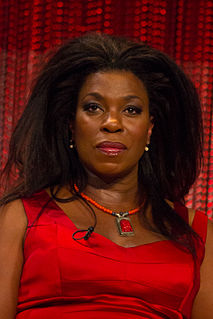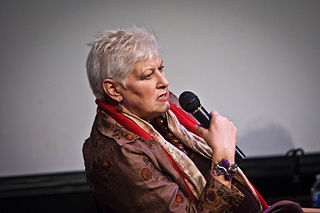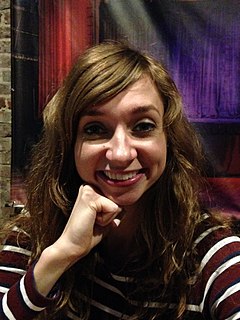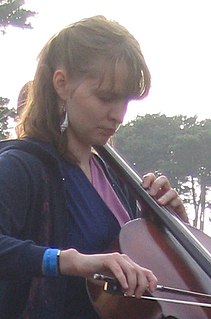A Quote by Maria Semple
I learned that comedy is born out of strong characters. I won't begin writing a character until I have a clear take on them.
Related Quotes
When you create those characters that people love and care about and put them in a dark hallway, already the audience is on edge, and they feel empathy for that character. Then it's up to me to decide what jumps out in that hallway. So I think laying that foundation of strong characters and strong story is the most important thing in a horror film.
When you are writing, you have to love all your characters. If you're writing something from a minor character's point of view, you really need to stop and say the purpose of this character isn't to be somebody's sidekick or to come in and put the horse in the stable. The purpose of this character is you're getting a little window into that character's life and that character's day. You have to write them as if they're not a minor character, because they do have their own things going on.
Before I begin a novel I have a strong sense of at least one central character and how the story begins, and a more vague sense of where things may wind up, but at some point, if the novel is any good at all, the story and characters take on lives of their own and take over the book, and the writer has to be open to that.
Sometimes I'll be fifty, sixty pages into something and I'll still be calling a character "X." I don't have a very clear idea of who the characters are until they start talking. Then I start to love them. By the time I finish the book, I love them so much that I want to stay with them. I don't want to leave them ever.
You have to go as hard as you possibly can, or it's going to be weak. Whenever I find myself not committing fully to a character, it's not as funny. It doesn't have that clear point of view, and you find yourself wandering all over the place, whereas committed characters make strong choices that are clear to the audience.
What I do is give Ennio Morricone suggestions and describe to him my characters, and then, quite often, he'll possibly write five themes for one character. And five themes for another. And then I'll take one piece of one of them and put it with a piece of another one for that character or take another theme from another character and move it into this character.... And when I have my characters finally dressed, then he composes.
GOOD AS NEW was born out of the idea of writing a play where the stakes were high and the collisions were of a verbal nature. Also I wanted to write a play where people were smarter than I was, and more alive than I feel normally. I became interested in the idea of characters who would surprise me. I guess one could argue that nothing comes out of you that wasn't within you to begin with, but maybe there are ways to trick yourself into becoming more an observer or an advocate for the characters.

